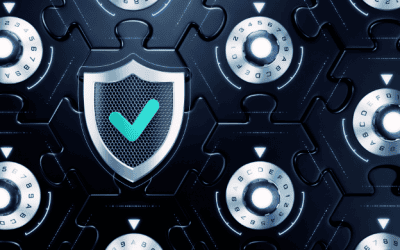The Role of AI in Today’s Cybersecurity Solutions
AI is the broader field of computer science that involves creating intelligent machines that can perform tasks that typically require human-like intelligence, such as perception, reasoning, learning, and problem-solving. According to Oracle and Expert AI, machine learning is a subset of AI focusing on developing algorithms and models that can learn and improve from experience without being explicitly programmed.
In cybersecurity, machine learning algorithms analyze large amounts of data, such as network traffic and user behavior, to detect patterns and anomalies indicative of a cyber attack. These algorithms can learn from past data and adapt to new situations, allowing them to detect and respond to previously unseen threats. This is particularly important in today’s rapidly evolving cybersecurity landscape, where new threats constantly emerge.
In other words, machine learning is essential to AI and plays a crucial role in cybersecurity solutions. Its ability to learn and adapt to new situations is valuable in defending against cyber attacks and protecting sensitive data and systems.
Rule-Based vs. Machine Learning
Machine learning and rule-based cybersecurity are two approaches to securing against potential cyber threats. Rule-based systems typically rely on predefined rules humans create to detect and prevent known cyber attacks. These rules are often based on specific patterns or signatures associated with known attacks, and the system will trigger an alert or block access if these patterns are detected.
In contrast, machine learning systems utilize algorithms and statistical models to analyze large amounts of data and identify patterns and anomalies that may indicate a cyber attack. These systems can learn from past data and adjust their algorithms to detect new threats, making them more flexible and adaptable to new and emerging threats.
While rule-based systems can effectively detect known attacks, they may struggle to identify new and sophisticated attacks that do not fit into predefined patterns. On the other hand, machine learning systems have the potential to identify previously unknown threats, but they require large amounts of high-quality data to train their models effectively.
In practice, a combination of rule-based and machine-learning approaches is often used in cybersecurity to provide a comprehensive and effective defense against a wide range of cyber threats.
The Benefits of AI in Cybersecurity
Enhanced Threat Detection:
Machine learning algorithms can quickly analyze large volumes of data and identify patterns indicative of a cyber attack. These algorithms can also learn from past data and adapt to new and emerging threats, allowing organizations to stay one step ahead of attackers. AI-based systems automate threat detection and response, reducing the time and effort required to detect and mitigate potential threats.
Improved Incident Response:
Cybersecurity solutions that use machine learning and AI can help organizations respond to incidents more effectively. For example, AI-powered incident response systems can analyze large amounts of data to identify the root cause of an incident, enabling organizations to take appropriate action quickly.
Cost-Effective:
Machine learning and AI-based cybersecurity solutions can be more cost-effective than traditional approaches that rely on manual intervention. These solutions can automate many of the time-consuming and repetitive tasks associated with cybersecurity, freeing up security personnel to focus on more strategic activities.
In summary, machine learning and AI-based cybersecurity solutions offer numerous benefits to organizations, including enhanced threat detection, improved incident response, and cost-effectiveness. As the cybersecurity landscape continues to evolve, these solutions are becoming increasingly critical for organizations to protect their sensitive data and systems from cyber threats.
Choosing AI-Driven Solutions Wisely
Despite the many benefits of AI-driven cybersecurity solutions, there are also some limitations that organizations need to consider. One of the main limitations is the risk of false positives. Machine learning algorithms can sometimes generate false alerts, leading to wasted resources or compromised security, which is the last thing you want. That’s why AgileBlue has implemented our Silencer Technology to help reduce the number of false positives bogging down your resources. Our Silencer Technology reduces the number of false positives by an impressive 95%, so when an alert pops up, you know it’s the real deal.
Additionally, certain AI-driven cybersecurity solutions can be challenging to implement and maintain, and some need specialized expertise to configure and manage. Good news for you. We’ve worked to solve those problems too. AgileBlue’s Cerulean platform deploys in an average of two weeks, faster than the industry average of four weeks. While our team of experts is on call 24/7 to respond, investigate, and remediate your cybersecurity emergencies. Organizations face various potential cyber threats regardless of size or industry. You have much to worry about – that’s why our team of experts will be on watch, so you can sleep at night.




